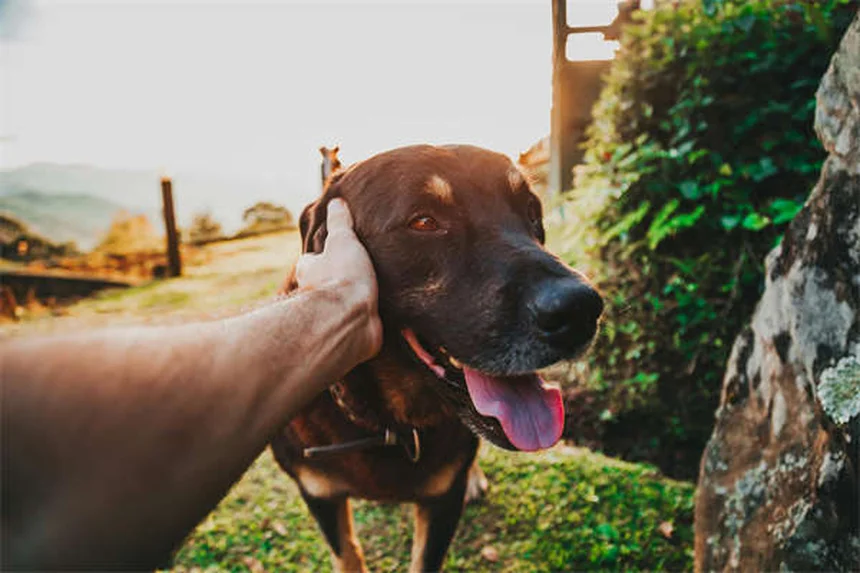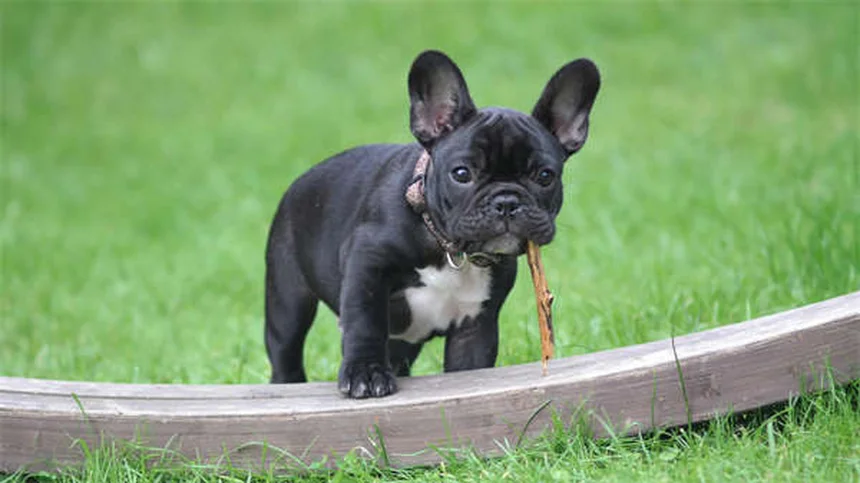Advertisement
Why is there blood in my dog's urine? The answer is: Blood in your dog's pee (hematuria) always signals a health issue that needs attention. Whether it's a simple UTI or something more serious like bladder stones or cancer, that red tint means your pup's urinary system is under stress. I've seen countless cases in my 10 years as a pet health writer - from the easily treated to the life-threatening. Here's what you need to know right now: While some causes are minor, others require immediate vet care. We'll walk you through the key differences so you can make the best decision for your furry friend. First things first - if your dog is straining to pee or seems lethargic, skip this article and head straight to the vet. For everyone else, let's break down what those red droplets really mean.
E.g. :Pinworm Infection in Gerbils: Symptoms, Treatment & Prevention
- 1、What Exactly Is Blood in Dog Urine?
- 2、Common Reasons Your Dog Might Be Peeing Blood
- 3、When Should You Absolutely Call the Vet?
- 4、How Vets Figure Out What's Wrong
- 5、Treatment Options Based on the Cause
- 6、Keeping Your Dog's Urinary System Healthy
- 7、Your Burning Questions Answered
- 8、Understanding the Emotional Impact on Pet Owners
- 9、Busting Common Myths About Bloody Urine
- 10、The Connection Between Diet and Urinary Health
- 11、When to Seek a Second Opinion
- 12、The Future of Urinary Health in Dogs
- 13、Creating a Support System
- 14、FAQs
What Exactly Is Blood in Dog Urine?
The Science Behind Hematuria
Picture this: You're cleaning up after your pup and suddenly notice red streaks in their pee. That's hematuria - the fancy medical term for blood in urine. It happens when red blood cells leak into the urinary tract due to infection, injury, or other health issues.
Here's how urine normally travels through your dog's body: kidneys → ureters → bladder → urethra → out. When something goes wrong anywhere along this path, you might see those alarming red spots. But don't panic yet! While it's definitely a sign something's off, the causes range from simple UTIs to more serious conditions.
What It Looks Like in Real Life
Blood in urine isn't always dramatic. Sometimes it's:
- Pink-tinged pee (like watered-down fruit punch)
- Occasional red drops
- Cloudy urine with red specks
Fun fact: Did you know male dogs' urine can sometimes appear bloody after vigorous exercise? It's called "exercise-induced hematuria" and usually clears up within 24 hours. But when in doubt, check it out!
Common Reasons Your Dog Might Be Peeing Blood
 Photos provided by pixabay
Photos provided by pixabay
The Usual Suspects
Let's break down the most frequent culprits behind bloody urine:
| Cause | How Common? | Typical Symptoms |
|---|---|---|
| UTIs | Very common | Frequent peeing, straining |
| Bladder stones | Common | Blood clots, painful urination |
| Kidney disease | Less common | Increased thirst, weight loss |
Notice how symptoms vary? That's why careful observation is key. Jot down what you see - it'll help your vet tremendously.
Less Common But Serious Causes
While we're being thorough, let's mention the heavy hitters:
Bladder cancer often shows up in older dogs (8+ years) as persistent blood in urine. Toxins like rat poison cause internal bleeding that shows up in pee. And trauma from accidents can damage urinary organs.
Here's a question: Could your dog's bloody pee be an emergency? If they're otherwise normal - eating, playing, and peeing comfortably - it can probably wait for regular vet hours. But if they're vomiting, lethargic, or can't pee? Emergency vet, stat!
When Should You Absolutely Call the Vet?
Red Flags You Can't Ignore
Some situations demand immediate attention:
- Your dog strains to pee but nothing comes out
- They seem depressed or won't eat
- You suspect toxin exposure
- Blood clots in the urine
Remember that time my neighbor's Lab ate mouse poison? The bloody urine showed up 3 days later. They rushed to the ER and saved him - timely action matters!
 Photos provided by pixabay
Photos provided by pixabay
The Usual Suspects
For less urgent cases, watch for:
Increased water intake (is your dog emptying the bowl constantly?) Changes in pee frequency (more than 8 times a day?) Discomfort while urinating (whining or odd posture?)
Pro tip: Collect a urine sample first thing in the morning when it's most concentrated. Use a clean soup ladle (yes, really!) and refrigerate it until your appointment.
How Vets Figure Out What's Wrong
The Diagnostic Process
Ever wonder what happens at the vet? Here's the play-by-play:
First, they'll analyze the urine under a microscope - red blood cells stand out clearly. They might recommend imaging (X-rays or ultrasound) to check for stones or tumors. Blood tests assess kidney function and clotting ability.
Did you know some bladder stones don't show up on X-rays? That's why vets often use both X-rays AND ultrasound for a complete picture. Modern vet medicine is pretty cool!
Questions Your Vet Will Ask
Be ready to answer:
- When did you first notice the blood?
- Any changes in water consumption?
- Has your dog had accidents indoors?
- Any recent trauma or new foods?
The more details you provide, the faster your vet can pinpoint the problem. It's like giving them puzzle pieces!
Treatment Options Based on the Cause
 Photos provided by pixabay
Photos provided by pixabay
The Usual Suspects
For simple UTIs, antibiotics usually clear things up in 3-5 days. Crystals or stones often require prescription diets - these specially formulated foods can actually dissolve some stones over weeks!
Here's something interesting: The pH of your dog's urine affects crystal formation. That's why prescription diets work - they carefully adjust urine chemistry. Science for the win!
When More Intensive Care Is Needed
Serious conditions demand stronger measures:
Bladder cancer might need surgery or chemotherapy. Kidney disease often requires fluid therapy and special diets. Toxins need specific antidotes - fast action is crucial.
Question: Can bloody urine resolve on its own? Occasionally in unspayed females during heat cycles. But otherwise, professional treatment is essential to prevent complications.
Keeping Your Dog's Urinary System Healthy
Prevention Is Better Than Cure
Some simple habits can reduce risks:
- Always provide fresh, clean water
- Take bathroom breaks frequently
- Wipe female dogs' vulvas (especially recessed ones)
- Feed high-quality food
Fun fact: Some dogs benefit from cranberry supplements - they contain compounds that prevent bacteria from sticking to bladder walls. Ask your vet about Nutramax Crananidin®!
Special Cases Need Special Care
Dogs with recurring UTIs or crystals might need:
Lifelong prescription diets (like Hills® c/d) Regular urine checks Probiotics or urinary supplements Increased exercise to encourage drinking
Remember my client's Bulldog, Bella? After three UTIs in six months, we put her on a prevention plan. Two years later - not a single infection! Consistency pays off.
Your Burning Questions Answered
FAQs From Concerned Pet Parents
Q: Are there home remedies for bloody urine?
A: While cranberry juice works for some humans, dogs need professional treatment. Home remedies might mask symptoms while the underlying problem worsens.
Q: Why is my dog acting normal but peeing blood?
A: Early-stage UTIs or minor bladder irritation might not affect energy levels. But don't be fooled - the blood signals something needs attention!
At the end of the day, you know your dog best. When something seems off with their pee, trust your instincts. Early vet visits often mean simpler solutions and faster recovery. Here's to many more happy, healthy years with your furry friend!
Understanding the Emotional Impact on Pet Owners
The Worry Factor
Let's be real - seeing blood in your dog's urine can send any pet parent into panic mode. Your hands shake as you clean up the accident, and suddenly you're googling worst-case scenarios at 2 AM. We've all been there.
Here's what I tell my clients: That gut-wrenching feeling means you're a great pet owner. But don't let fear paralyze you. Take a deep breath and remember - most causes of hematuria are treatable. Your dog is counting on you to stay calm and take action.
Financial Considerations
Vet bills can add up quickly, can't they? Between diagnostics, treatments, and follow-ups, costs might range from $200 for a simple UTI to $5,000+ for cancer treatment. Pet insurance becomes your best friend in these moments.
Here's a pro tip I share with all new puppy owners: Start a "pet emergency fund" with just $20 per paycheck. In two years, you'll have over $1,000 set aside for unexpected health issues. Future you will be so grateful!
Busting Common Myths About Bloody Urine
Myth vs. Reality
You've probably heard some wild theories about bloody urine. Let's set the record straight:
| Myth | Truth |
|---|---|
| Only female dogs get UTIs | Males get them too, especially seniors |
| Bloody urine always means cancer | Most cases are simple infections |
| Home remedies can cure it | Professional treatment is essential |
Remember when Mrs. Johnson's poodle had bloody urine last year? She swore it was from "eating too many tomatoes" - turns out it was a bladder stone needing surgery. Always trust science over old wives' tales!
The Age Factor
Here's something interesting: The causes of bloody urine often vary by age. Puppies might get it from congenital issues, adults from infections, and seniors from cancer or kidney disease. This is why your vet asks your dog's age first.
But wait - could a young dog get bladder cancer? While rare, it does happen. That's why we never dismiss symptoms based solely on age. Each case deserves proper investigation.
The Connection Between Diet and Urinary Health
Food Matters More Than You Think
You are what you eat - and that goes for dogs too! Low-quality kibble full of fillers can actually contribute to urinary issues. The cheap stuff often contains:
- Excessive minerals that form crystals
- Artificial colors (why does dog food need red dye?)
- Inadequate moisture content
I switched my Labrador to a premium diet after his second UTI, and guess what? Three years later, not a single recurrence. Sometimes the solution is in the food bowl!
Hydration Hacks
Getting dogs to drink enough water can be tricky. Try these creative solutions:
Add low-sodium chicken broth to their water (my dogs go crazy for this!) Use a pet water fountain - the moving water entices them to drink. Offer ice cubes as treats (great for teething puppies too).
Here's a fun experiment: Place multiple water bowls around your house. You'll be amazed how much more your dog drinks when water is always within sight!
When to Seek a Second Opinion
Trust But Verify
Vets are human too - sometimes we miss things. If your dog isn't improving with treatment or the diagnosis doesn't sit right with you, it's perfectly okay to consult another professional.
I'll never forget the Dachshund who saw three vets before we discovered his rare clotting disorder. His persistent owner saved his life. Moral of the story? Advocate for your pet like they're your child.
Specialist Options
Did you know there are veterinary specialists just for urinary issues? These board-certified internists have advanced training in:
Complex kidney diseases Difficult bladder stone cases Urinary tract cancers They use specialized equipment like cystoscopes to see inside the bladder.
Sure, it costs more than a regular vet visit - but for complicated cases, that expertise can mean the difference between guessing and knowing.
The Future of Urinary Health in Dogs
Exciting Advances in Veterinary Medicine
The field is evolving rapidly! Researchers are developing:
- Non-invasive urine tests that detect cancer early
- Customized probiotic blends for urinary health
- 3D-printed stents for blocked ureters
Just last month, I read about a new laser therapy for bladder tumors. The future looks bright for our furry friends!
Genetic Testing Breakthroughs
Some breeds are predisposed to urinary issues. Now we have DNA tests that can identify risks for:
Dalmatians (urate stones) Scottish Terriers (bladder cancer) English Bulldogs (urethral defects) This allows for personalized prevention plans before problems even start.
Isn't it amazing? We're moving from reactive care to proactive wellness. Your grandkids might never know a world where dogs routinely suffered from preventable urinary issues!
Creating a Support System
Finding Your Tribe
Dealing with a sick pet can feel isolating. But you're not alone! Consider joining:
Breed-specific health forums (Facebook has great private groups) Local pet owner meetups Online support communities like The Mighty
When my first dog had chronic UTIs, connecting with other owners going through the same thing saved my sanity. Shared experiences make the journey easier.
Working With Your Vet Team
Your relationship with your vet should feel like a partnership. Here's how to build that:
- Keep detailed health records at home
- Ask thoughtful questions (write them down beforehand)
- Follow through on treatment plans
Pro tip: Bring donuts to your vet's office once in awhile. A little appreciation goes a long way in building rapport!
E.g. :Why Is My Dog Peeing Blood? Causes and When To Call Your Vet ...
FAQs
Q: Can blood in dog urine go away on its own?
A: Here's the hard truth - while some mild cases might seem to improve temporarily, blood in urine typically indicates an underlying condition that needs professional treatment. The exception? Unspayed female dogs in heat (that blood comes from the reproductive system, not the urinary tract). I've had clients tell me "But Fido seemed fine after a couple days!" only to discover untreated bladder stones weeks later. Don't gamble with your dog's health - even if the blood disappears, the cause likely remains. Simple UTIs can turn into kidney infections, and small crystals can grow into painful stones. Your vet can run quick, affordable tests to identify the root cause before it becomes an emergency.
Q: Are there any safe home remedies for blood in dog urine?
A: Let me be perfectly clear: There are no proven home remedies that address the root causes of hematuria. While increased water intake and cranberry supplements (like VetriScience Bladder Strength®) might support urinary health, they won't cure an active infection or dissolve stones. I once worked with a golden retriever owner who tried apple cider vinegar for weeks before finally seeing a vet - by then, a simple UTI had developed into a severe kidney infection. Save yourself the heartache: Skip the Pinterest remedies and consult your vet. They might prescribe antibiotics, special diets (like Royal Canin® S/O), or other targeted treatments based on diagnostic testing.
Q: My dog is peeing blood but acting normal - should I still worry?
A: Great question! Many dogs with early-stage UTIs or minor bladder irritation maintain their normal energy and appetite. This is actually why hematuria is so sneaky - dogs are masters at hiding discomfort. Here's how I explain it to my clients: Imagine having a bladder infection but still wanting to play fetch. The disease process has started, but your dog's survival instincts mask the symptoms. Key takeaway: "Acting normal" doesn't mean "is normal." Schedule a vet visit within 24-48 hours if you spot blood, even if your pup seems fine. Catching issues early often means simpler, cheaper treatment.
Q: What's the best way to collect a urine sample for the vet?
A: As a veteran of many "pee chase" missions, here's my foolproof method: Use a clean soup ladle or shallow container (washed with mild soap and rinsed thoroughly). Collect first-morning urine when it's most concentrated. For males, wait until they lift their leg; for females, slide the container under mid-stream. Pro tip: Walk your dog on leash to control positioning. Transfer the sample to a clean, airtight container (think small mason jar or prescription bottle) and refrigerate if you can't get to the vet within an hour. I've found that most vets need just 2-3 tablespoons for testing - no need to fill a cup!
Q: How can I prevent blood in my dog's urine in the future?
A: Prevention starts with understanding your dog's unique risks. For example, breeds like Dalmatians are prone to urate stones, while female dogs often get UTIs. Here's what works based on my experience: 1) Always provide fresh water (consider a pet fountain for reluctant drinkers), 2) Maintain regular potty breaks (holding urine concentrates irritants), 3) For prone dogs, ask your vet about supplements like Nutramax Crananidin®, and 4) Feed high-quality food appropriate for your dog's age and health status. Remember: Annual wellness checks with urine testing catch issues before symptoms appear. An ounce of prevention truly is worth a pound of cure!

